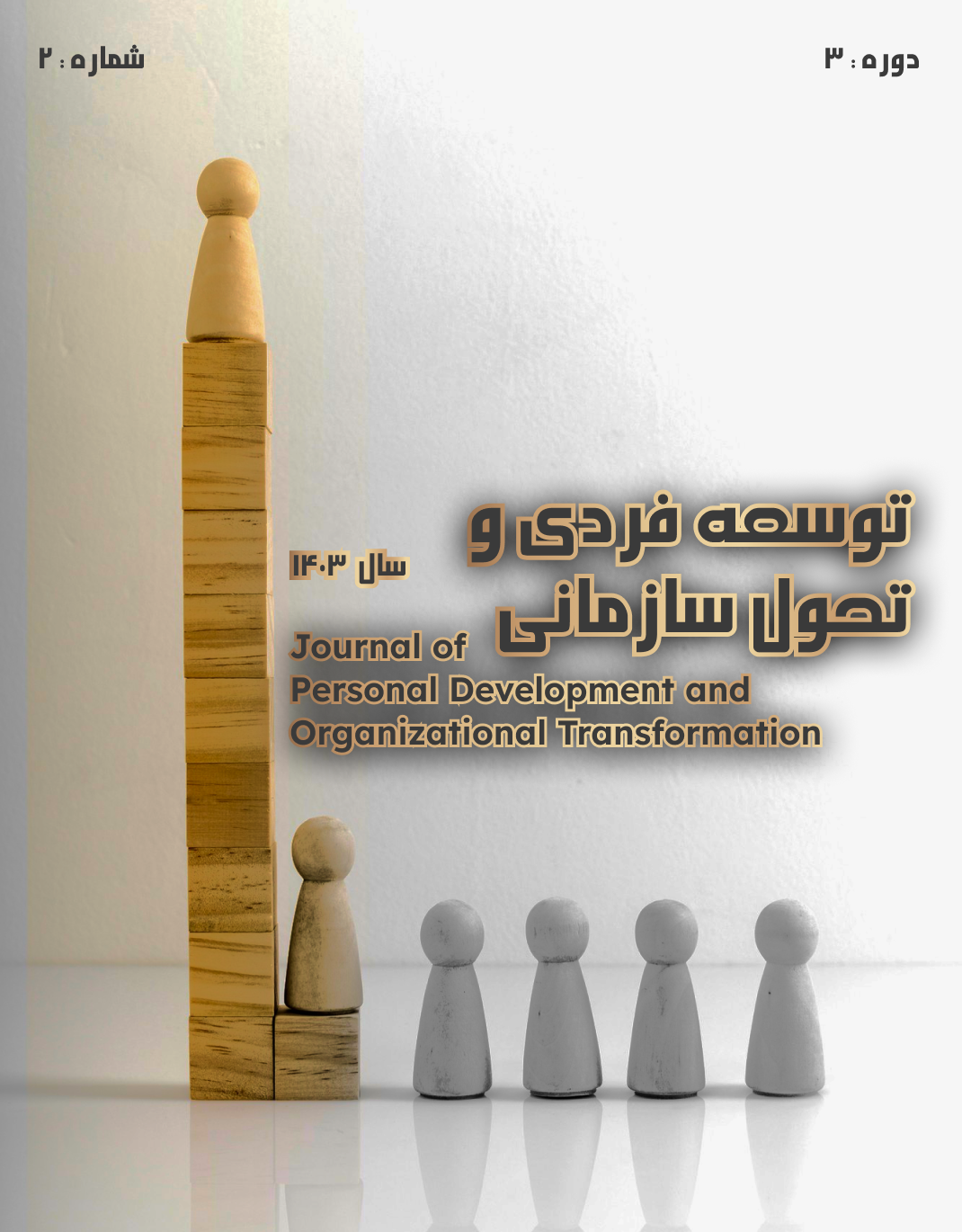Explaining the Causal Model of Predicting Job Enthusiasm Based on Spiritual Health and Spiritual Capital of Islamic Education Teachers in Salahuddin Province, Iraq
Keywords:
Job enthusiasm, spiritual health, spiritual capitalAbstract
This study aimed to examine the predictive role of spiritual health and spiritual capital in the job enthusiasm of Islamic education teachers in Salahuddin Province, Iraq. This applied study used a descriptive-correlational design. The statistical population included 1,115 secondary school Islamic education teachers in Salahuddin Province during the 2024–2025 academic year. A sample of 391 teachers was selected through convenience sampling. Data collection tools included the Utrecht Job Enthusiasm Questionnaire (2003), the Spiritual Well-Being Scale by Daaleman and Frey (2004), and the Spiritual Capital Questionnaire by Khalili et al. (2014). Data were analyzed using Pearson correlation, multiple regression, t-tests, and structural equation modeling through SPSS and SmartPLS. Results indicated significant relationships between spiritual health and job enthusiasm (β = 0.326, t = 7.903, p < 0.001), and between spiritual capital and job enthusiasm (β = 0.237, t = 2.701, p < 0.001). The model exhibited strong overall fit with a GOF value of 0.709. The R² value for job enthusiasm was reported at 0.747, suggesting that spiritual health and spiritual capital collectively explained approximately 74.7% of the variance in teachers’ job enthusiasm. Spiritual health and spiritual capital are significant predictors of job enthusiasm among Islamic education teachers. The findings provide practical implications for educational authorities in Iraq to develop supportive strategies aimed at fostering teacher engagement and improving the quality of education in the region.
Downloads
References
Abroshan, S. A.-I. (2019). A mediating role of religious orientation in the relationship between the need for cognition and resilience. Psychology and Religion, 47(12), 101-119. http://ensani.ir/fa/article/416470/
Amiri, M., Nargesian, A., Farahi, A., & Gholami, B. (2021). Presenting a model of spiritual capital in non-governmental organizations in Tehran. Journal of Human Resource Management Research(43), 101-129. https://hrmj.ihu.ac.ir/m/article_206080.html
Anitha, J. (2014). Determinants of employee engagement and their impact on employee performance. International Journal of Productivity and Performance Management, 63(3), 308-323. https://doi.org/10.1108/IJPPM-01-2013-0008
Aryanpour, S., & Khalili Bagheri, H. (2024). The impact of spirituality on the job enthusiasm of physical education teachers with the mediating role of job virtue. Human Resource Management in Sports, 11(1), 191-207. https://shm.shahroodut.ac.ir/article_3070.html
Asghari, A. (2023). Examining the relationship between religiosity, mental health, and job satisfaction of primary school teachers in Naqdeh County. Journal of Psychological and Educational Studies, 9(1), 117-128. https://doi.org/10.1017/S0003055423000175
Binu Raj, A., Ambreesh, P., Tripathi, N. N., & Ambreesh Kumar, A. (2023). Workplace spirituality and job satisfaction among teachers: influence of well-being and spiritual leadership. International Journal of Educational Management, 37(6/7), 1303-1322. https://doi.org/10.1108/IJEM-03-2023-0110
Faqihi Farahmand, N., & Zanjani, S. (2015). Examining the relationship between employees' perceptions of work ethic dimensions with job satisfaction and work stress (case study of the Technical and Vocational Training Organization of Tabriz). Sociological studies, 5(18), 103-118. https://journals.iau.ir/article_521133.html
Fattahi, I., & Amini, A. (2015). Analyzing the concept and types of definitions of spiritual health. Journal of Spiritual Studies(15-16), 5-16. https://www.noormags.ir/view/fa/articlepage/1376625/
Gholipour Khanemiri, T., Khodaei, A., Shirazi, M., & Nazari, K. (2018). Examining the relationship between spiritual health and job satisfaction among nurses in the Shahid Tabatabai Educational Treatment Center. Ethics and History of Medicine, 11, 221-230. https://ijme.tums.ac.ir/browse.php?a_id=6004&sid=1&slc_lang=fa
Golparvar, M., Mosahabi, M. R., Abedini, H., Adibi, Z., & Abdali, F. (2015). Constructing and validating a scale for spiritual capital and spiritual well-being of the elderly. Journal of Educational Measurement(19), 125-145. https://jem.atu.ac.ir/article_1701.html
Hajloo, N., Sobhi Gharamaleki, N., & Aqil Hoshand, R. (2015). Personality predictors of job enthusiasm among teachers. A New Approach in Educational Management, 6(2), 61-75. https://ensani.ir/fa/article/352997/
Haqparast Lati, T., Nadri, A., & Naraghi Sif, M. (2018). A model for a spiritual curriculum in the course of social studies aimed at the development of spiritual health for learners. Journal of Educational Guidance in Medical Sciences(11), 150-157. https://edcbmj.ir/article-1-1539-fa.html
Javaheri, N., & Faraji, H. (2021). Examining the impact of organizational commitment on administrative health with an emphasis on the mediating role of job enthusiasm in the Governorate of North Khorasan. Journal of Administrative Studies and Research(12), 36-50. https://www.noormags.ir/view/fa/articlepage/1879883/
Khalili, A., Asl, M. K., & Farajzadeh, Z. (2014). Spiritual capital and job satisfaction: A case study of university staff. Journal of Management Development, 33(8), 797-809.
Mokhtari, L., Gharaman Zadeh, R., Nasrollah Zadeh, L., & Khorami Markani, A. (2021). The impact of spirituality-based educational intervention on spiritual health and spiritual development of nursing students. Journal of Midwifery, Nursing, and Paramedicine, 7(2). https://sjnmp.muk.ac.ir/browse.php?a_id=421&sid=1&slc_lang=fa
Mousavi Nia, M. J., Ashaqi, M., & Naami, A. Z. (2022). The relationship between ethical leadership, organizational identity, and spirituality in the workplace with unethical behavior for the benefit of the organization, mediating job satisfaction among employees of Shahid Chamran University of Ahvaz. Journal of Knowledge and Research in Applied Psychology(88), 215-225. https://www.sid.ir/paper/1032764/fa
Naami, A. M. (2018). The impact of spirituality training on organizational commitment, retention of human resources, and job enthusiasm of primary school managers. Journal of School administration, 6(1), 153-168. https://ensani.ir/fa/article/453141/
Rezaeirad, M., Payan, S., & Elahi, M. (2022). The relationship between spiritual intelligence and spiritual health with the enhancement of job performance of employees at the University of Medical Sciences of Langeroud. Scientific Research Journal of Quran and Medicine, 7(3), 82-87. https://www.sid.ir/paper/1116680/fa
Rohma, S., Harapan, H., & Wardiah, D. (2020). The Influence of School-Based Management and Teacher's Professionalism toward Teacher's Performance. Journal of Social Work and Science Education, 1(1), 2723-6919. https://doi.org/10.52690/jswse.v1i1.6
Safian, M., Hassanpour, M., Bahmani, A., & Mousavi Davoodi, S. M. (2021). The relationship between spiritual health and organizational health in the staff of the Medical University of Qom. Research in Religion and Health, 7(4), 10-18. https://journals.sbmu.ac.ir/jrrh/article/view/30517
Zhang, E., & Ye, Y. (2024). Understanding how to ignite teacher enthusiasm: The role of school climate, teacher efficacy, and teacher leadership. Current Psychology, 43(15), 13241-13254. https://doi.org/10.1007/s12144-023-05387-2
Downloads
Published
Submitted
Revised
Accepted
Issue
Section
License
Copyright (c) 2025 فاروق خلف عبید (نویسنده); فرانک امیدیان; قیس ذیاب عبد, مریم براتعلی (نویسنده)

This work is licensed under a Creative Commons Attribution-NonCommercial 4.0 International License.







